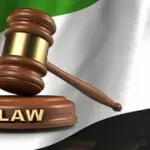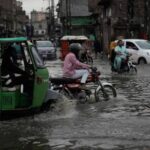Who are the Druze? The discussion reveloves around the masses. The Druze are a minor religious sect from the Middle East. Their beliefs began over a thousand years ago. It developed from Islam but created its own doctrines. They have a rich history, unique beliefs, and a strong feeling of community. They have gained recognition in recent years as a result of their ties with Israel. Israel is well-known for defending the Druze, both within its borders and in surrounding nations.
The BBC reports that the group “incorporate aspects of Ismaili Islam, Gnosticism, Neoplatonism, and other philosophies”. Their ideas combine parts of Islam, Christianity, ancient Greek philosophy, and other faiths. The Druze believe in a single God. They also believe in the idea of rebirth. Their faith is private. Its comprehensive teachings are known only to a privileged few members. These members are known as the uqqāl. The remainder belong to the juhhāl, who do not study the deeper mysteries.
The majority of Druze live in Syria, Lebanon, Israel, and Jordan. According to the BBC, approximately 140,000 of their population dwell in Israel as of 2022. They speak Arabic and have numerous cultural similarities with other Arabs. However, they have always maintained their separate identities.

Where do they live?
In Israel, the Druze are an officially recognized minority group. They have equal rights as Jewish citizens. Their military service distinguishes them from other Arab people. Their males serve in Israel’s Defense Forces (IDF). According to National Geographic, “Druze in Israel are uniquely integrated into the state, serving in the army and filling key roles in politics and society.” Many have advanced to high ranks in the military. Some have served as ministers, judges, or mayors.
Druze also live on the Israeli-occupied Golan Heights. This land was seized from Syria in 1967. Some of them embraced Israeli citizenship, but the majority did not. They have a close bond with family in Syria. During Syria’s civil conflict, Druze villages experienced violence. The New York Times reports that “the community in Syria has faced threats from both the government and extremist rebel groups.” In rare situations, violence against Druze has been documented. Many individuals were concerned about potential massacres by extreme groups associated to ISIS and Al-Qaeda.
Why Israel is protecting them?
Israel has pledged to defend the Druze. Reuters quoted Israel’s Defense Ministry in March 2025 as saying, “We will not allow the terrorist regime of radical Islam in Syria to harm the Druze.” Israeli officials have pledged to defend their towns along their border. This promise comes from a number of sources.
Firstly, the Israeli Druze have shown their allegiance. They have fought for their nation and contributed to Israeli life. Protecting them sends the impression that Israel supports its loyal minorities. The British Broadcasting Corporation says, “Israel’s alliance with the Druze is unique in the region and rooted in decades of cooperation and mutual interest”. Israel is interested in preserving a stable buffer zone along its northern border, particularly in the Golan Heights and southern Syria.
Protecting this group allows Israel to keep enemy forces. Such as extreme Islamist militias or Iranian-backed groups, from gaining a foothold near its borders. According to a Times of Israel study, Israel requires that any future peace agreement include a unique autonomous status for the Druze enclave, as well as enforceable security arrangements that Israel monitors to ensure that no hostile militias enter the area. This equates to Israel building a semi-demilitarized zone that serves its security objectives.
The Golan heights:
Secondly, violence near Israel’s border poses a security risk. Trouble in Druze parts of Syria may expand or spill over the border. Keeping them safe helps to keep the border peaceful. According to Al Jazeera: “Israel fears that attacks on the Druze could destabilise the Golan Heights and eventually threaten its own Druze population.”
Thirdly, Israel wants the world to know that it defends minorities. Standing up for them improves their international image. It also shows Arab Israelis that they are appreciated. Netanyahu’s emphasis on deploying force in Syria, even on behalf of the Druze, could serve to distract from internal challenges and strengthen a strong security image ahead of prospective elections.
Israel’s action against Syrian forces to protect Druze:
Israel’s actions and military strikes against Syrian forces in Druze areas undermine Damascus’ influence. Prime Minister Netanyahu’s words following the strikes, calling them a “clear message,” reflect a purpose to dissuade Syrian deployments near their villages, limiting Damascus’ freedom of action.
By providing humanitarian aid and security cooperation, Israel increases its influence among southern Syrian Druze communities. This approach is part of a broader Israeli policy to counter Iranian and Hezbollah influence following the October 7 Hamas attacks, concentrating on stabilizers such as the Druze to create favorable conditions along its borders. This pragmatic engagement reflects Israel’s shifting security strategy in a post-Assad Middle East.
The Druze are a tiny but significant group in the Middle East. Their cooperation with Israel is unique in a region riddled with strife and discord. According to the Jerusalem Post, “the fate of the Druze is closely watched by the Israeli public, who sees them as brothers-in-arms.” Their narrative is one of survival, loyalty, and the fight for safety in a harsh world.








